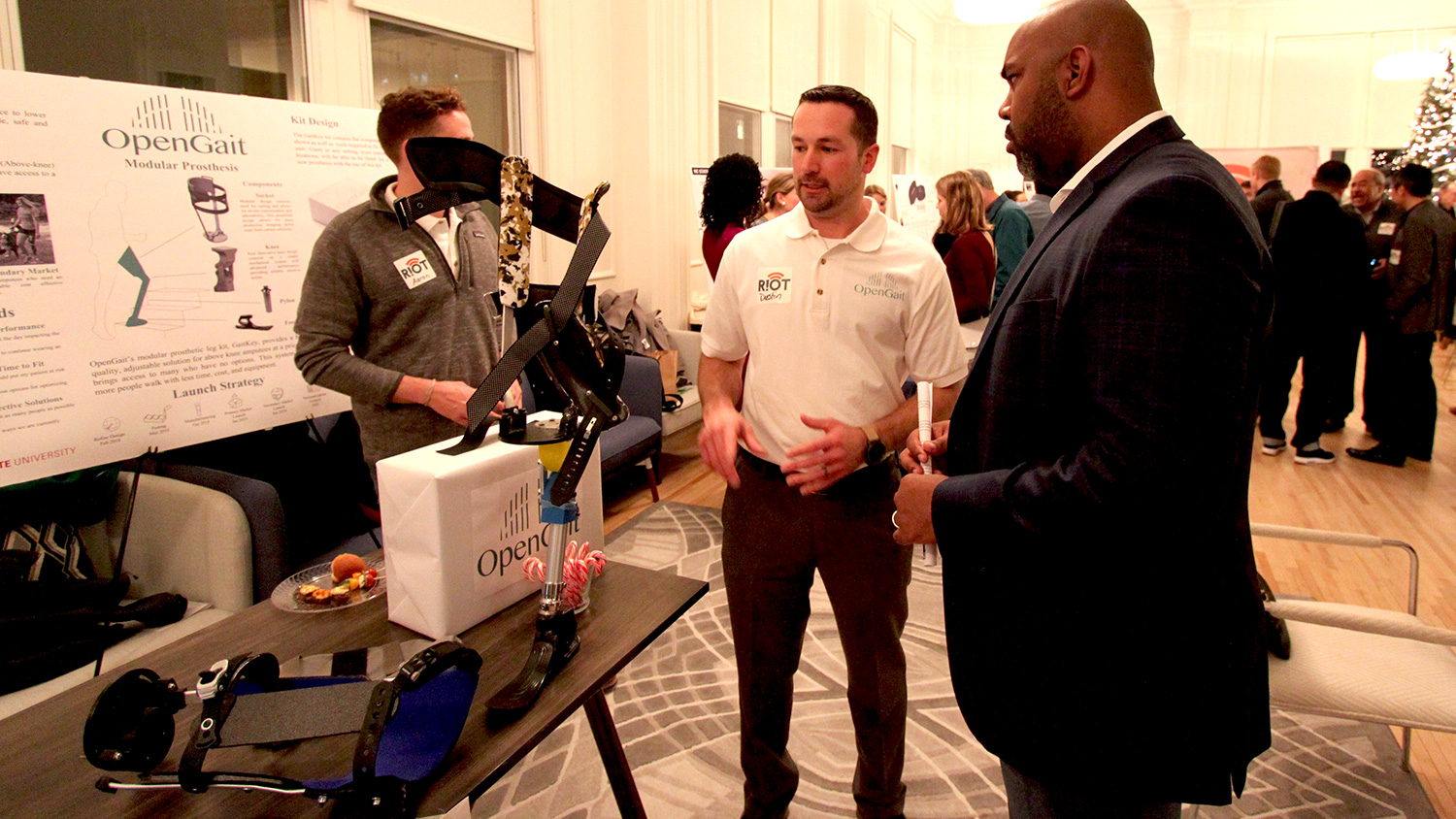Product Innovation Lab: Collaboration Leads to Success

Dustin Prescott earned his NC State Jenkins MBA in December 2017, yet he continues to work alongside former classmates and receiving advice from NC State University professors. That’s because Prescott was a member of the OpenGait team which is finding success with a product they began working on in the Product Innovation Lab, a cross-disciplinary practicum course they took during the fall 2017 semester.
The lab — team-taught by NC State faculty members in the Poole College of Management, the College of Design and the College of Engineering — gives students from diverse fields of study the opportunity to work together to design and develop a product.
“One key thing about this experience is the cross-disciplinary aspect,” says Jon Bohlmann, professor of marketing and innovation in the NC State Poole College of Management and one of the course teachers. “As students work on their projects, they realize the value and importance of working with others with diverse experiences and viewpoints to come up with great solutions to meet unmet needs in the marketplace.”
That’s what the OpenGait team members experienced while creating a low-cost modular above-the-knee (AK) prosthetic kit. In the developing world, the amputation of a limb often leads to a loss of mobility and independence. With the typical cost of an AK prosthesis between $10,000 and $70,000, acquiring one is not feasible for people earning just a few dollars a day.
“Our hope is to bring a product to market and really make an impact,” says Prescott, who worked alongside Aaron Fleming and Lindsay Sullivan, both doctoral students in biomedical engineering at NC State. “We want to bring mobility and independence back to those who have lost that.” The team is being supported by LifEnabled — a local non-profit organization that provides prosthetic devices at no charge to amputees in the developing world and suggested the project for the Product Innovation Lab.
The LifEnabled team’s mentors are helping the Product Innovation Lab team members better understand the challenges in target countries and assisting with the development and testing of prototypes.
“Throughout my MBA program, I studied a number of different areas — from accounting to finance and from marketing to innovation — and in all of those classes I learned some interesting ideas,” says Prescott. “The Product Innovation Lab course allowed me to pull together everything I had been working on throughout the program and apply it in a live case to form a business.”
Prescott says that the structure of the course provided him and his classmates the ability to research a problem and create potential solutions to help. “The professors gave us tools and practices that we could very quickly put into use,” he says. “The Product Innovation Lab gives everyone a safe place with low risk to test out new ideas that can solve real problems.”
Ola Harrysson, Edward P. Fitts Distinguished Professor of Industrial and Systems Engineering and one of the professors for the course, agrees. “This is as close as students are going to get to a real-world experience while they are in school,” he says. “When companies come up with new products, they don’t do it in isolation. Having multiplayer teams, with people from different backgrounds with different skills, helps elicit different ideas. Having students in this course from different schools in the university helps in innovation and concept generation — trying to find different ways of solving a problem.”
— Written for the NC State Poole College of Management by Michele Lynn


